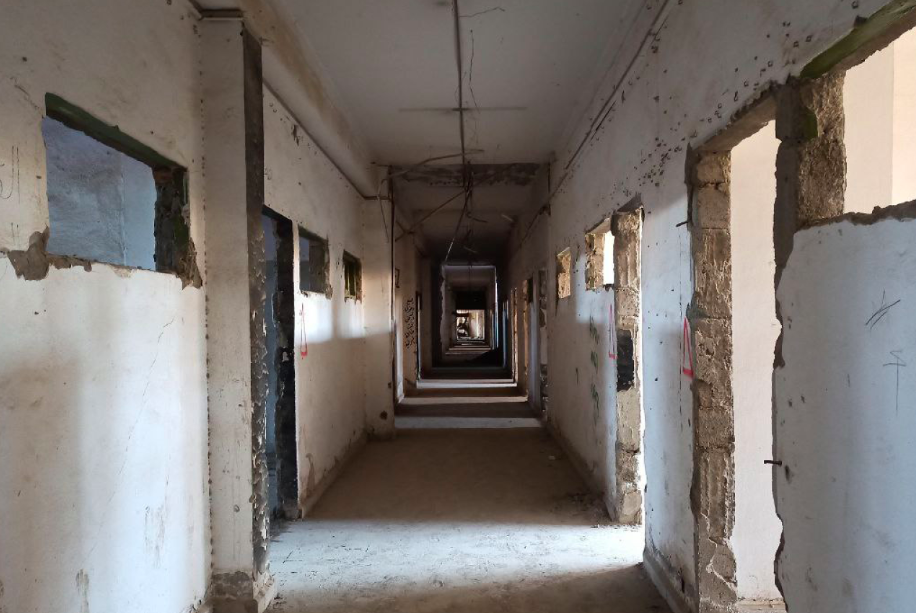A new report published today by the Syria Justice and Accountability Centre (SJAC) exposes the vast web of detention facilities that ISIS used to disappear thousands of people in Northeast Syria between 2013 and 2019.
Different wings of the ISIS security apparatus systematically used this network of 152 police stations, training camps, and secret security prisons to detain kidnapped civilians and fighters, in some cases ultimately issuing judicial sentences that led to their death.
SJAC reveals the locations of these detention facilities for the first time in its new report, “Unearthing Hope: The Search for the Missing Victims of ISIS.” The report documents the nature of ISIS arrests, prisoner transfers, and the profile of detainees and perpetrators. This information is enabling forensic investigations into the fate and whereabouts of those kidnapped by ISIS.
“We now have an understanding of where and why ISIS initially kidnapped people in Northeast Syria prior to their disappearance,” said Mohammad Al-Abdallah, SJAC’s Executive Director, “and can use this information to find out where these individuals ultimately ended up, so that their families can finally know the truth.”
Thousands of families of the missing still live in emotional and legal limbo years after the disappearance of their loved ones desperately trying to track down any information and unable to fully grieve their loss.
The report comes at a critical moment, with ISIS having regrouped since its territorial defeat and begun to mount a resurgence in Syria and Iraq that culminated in the recent assault on Ghweiran Prison in Hassakeh.
“A sustainable defeat of ISIS will require not only heightened security, but also meaningful justice for its victims, allowing for reconciliation, and accountability for perpetrators,” said Gabriel Young, Research Fellow at SJAC and a lead author of the report.
“Unearthing Hope” is the most comprehensive study of the ISIS detention apparatus available: it draws on 256 interviews with former members of ISIS, witnesses and survivors of detention by ISIS, and families of the missing. The report also analyzes 277 documents smuggled from the offices of the ISIS security apparatus in northern Syria and satellite imagery of mass graves created in the period of ISIS control.
An updated companion map to this report is available on the “Truth After ISIS,” website where users can access information on each individual grave and detention site documented by SJAC.
Although ISIS attracted significant media attention for its most grisly atrocities, until now there has been little information about the arbitrary detention and enforced disappearance that the group committed much more frequently, to a degree that may amount to crimes against humanity.
Furthermore, contrary to the image of wanton violence that ISIS projected, the report demonstrates that it is precisely because of the group’s systematic methods that there is hope of determining the circuits of ISIS detention, execution, and burial, which could ultimately lead to the identification of missing persons by groups like the Raqqa-based Syria Missing Persons and Forensic Team (SMFT).
Based on the findings of this report, SJAC is asking local authorities in Northeast Syria, the Global Coalition to Defeat ISIS, and international justice actors support investigations by SJAC and the SMFT by sharing internal ISIS documents captured during the liberation of Northeast Syria, granting interview access to detained ISIS members, and integrating these investigations into discussions around the wider missing persons portfolio in Syria.
#
The Syria Justice and Accountability Centre (SJAC) is a Syrian civil society organization working towards a Syrian state defined by justice, respect for human rights, and the rule of law, where citizens from all components of Syrian society live in peace without fear. Its mission is to promote justice and accountability in Syria by ensuring that human rights violations are comprehensively documented, and that documentation data is securely preserved, catalogued, and analyzed to advance transitional justice and peace-building.
For media inquiries, please contact:
English and Arabic:
Mohammad Al Abdallah
[email protected]
Cell Phone: +1-202-704-3215
Gabriel Young
[email protected]
Cell Phone: +1-574-850-9975
